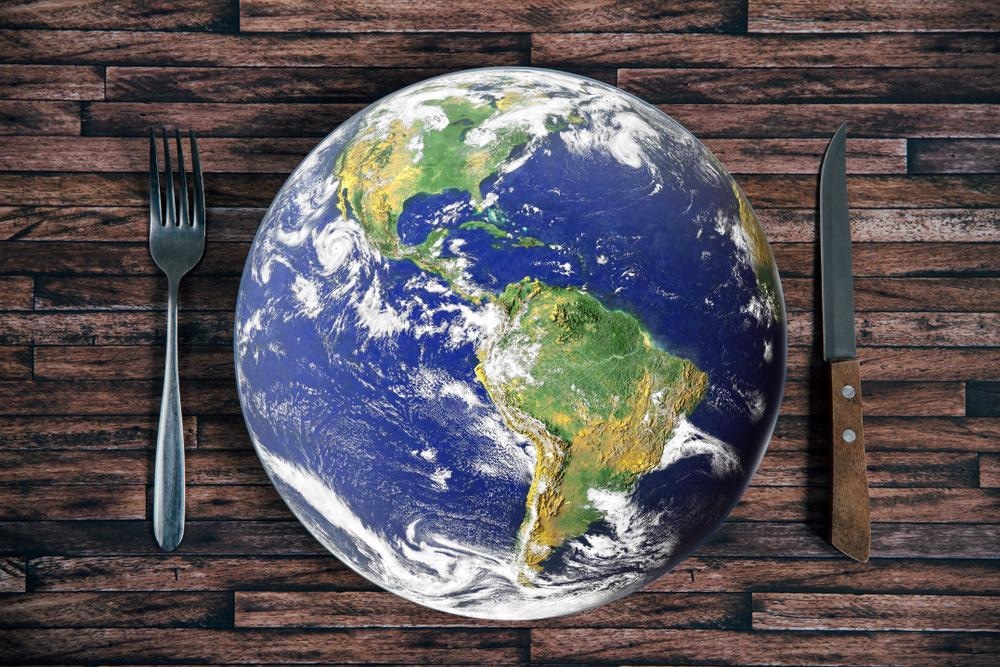Goal number two of the United Nation’s (UN) sustainable development goals (SDGs) is to achieve zero hunger. On January 1st, 2016, the UN’s 17 sustainable development goals came into force to promote global prosperity while simultaneously protecting the planet.
The UN believes that to end poverty, changes must be made in the pillars of economic growth, education, health, social protection, and environmental protection. Goal two, to end hunger, will be achieved by initiating strategies that impact these different spheres, only with cohesive efforts across sectors can hunger truly be ended.
What is the best way to end World Hunger?
Hunger is a global problem
Hunger affects people in all countries. A common misconception is that those who suffer from hunger are located in low- to middle-income countries but this is not true. Now, more than ever, high-income countries are facing rising rates of hunger.
The problem of hunger is a growing one. After some years of decline, the number of people suffering from hunger began to rise again in 2015 and it is now estimated that 690 million people each year go hungry (although some data estimates this figure is higher). This means that just shy of 9% of the world’s population doesn’t have access to enough food.
Currently, the world is not on track to meet the UN’s goal to achieve Zero Hunger by 2030. If no action is taken, the number of people going hungry will continue to increase to 840 million by this time. Unfortunately, the COVID-19 pandemic had the impact of worsening hunger. It has led to rising rates of unemployment and increased food prices, two factors that go hand in hand to reduce households’ ability to buy enough food. In fact, experts predict that a further 130 million people are at risk of acute hunger due to the pandemic.
In addition to tackling the escalating hunger rates the world currently faces, the job of ending hunger also involves considering the future and preparing the world to feed the ever-growing population. There will be an additional 2 billion people on the planet by 2050. Significant changes must be made to ensure that these people can access food.
Climate-Smart Agriculture
Climate change is a significant underlying factor that is driving global hunger. Rising emissions have resulted in more frequent and severe floods and droughts, extreme temperatures, and extreme weather events such as hurricanes. Even the melting of the ice caps and rising sea levels indirectly contribute to hunger by reducing crop yields or destroying them altogether.
Experts advise that the adoption of Climate-Smart Agriculture (CSA) is a vital tool to tackling hunger as well as mitigating the impact of global warming. It involves practices such as diversifying crop varieties, conservation agriculture practices, and low-water sack gardens.

Image Credit: Angyalosi Beata/Shutterstock.com
Addressing the gender gap
To solve global hunger, gender equality must be established in agriculture as well as in maternal and child health.
While women make up more than half of the agricultural labor force, they have fewer opportunities than men in the same field. Women in agriculture face challenges in obtaining finance, land, and education. As a result, their potential is not being met and the volume of crops they currently produce is being stunted. If women had the same opportunities as men, agricultural production would sharply rise by 20-30%. This could feed 150 million more people.
Additionally, women are unequally impacted by hunger, with data showing that women are more likely to go hungry than men. Some studies have shown that women are more likely to sacrifice themselves to allow others to eat. Therefore, women’s nutrition must be made a priority to tackle poverty.
Preventing crop infestations
Like droughts and floods, infestations also threaten to completely destroy crops. Farms in some regions of the globe are particularly at risk of pest outbreaks. Recent events have demonstrated the destructive nature of infestations, with an upsurge in locusts swarms in Eastern and Central Africa, and West Asia resulting in 13 million people potentially going hungry.
Agricultural practices that prevent infestations without damaging the environment are vital to ensure sustainable pest management that will prevent future crop disasters that limit food supplies.
Tackling food waste
One-third of all food produced for human consumption is thrown out or destroyed, recent data shows. Preventing food waste could make vast quantities of food available to those who would otherwise go hungry. Scientists are working on various innovations that could dramatically reduce food waste, such as edible sensors that prevent food spoiling while it is in transit and bioactive packaging that extends the shelf life of fruit and veg.
Summary
Ending global hunger is will not be a simple feat. Many strategies must be implemented in various sectors to tackle the issue at all angles. With COVID-19 exacerbating problems with food security, a lot of work must be done to turn around the trend we are currently seeing of rising numbers of people going hungry.
Continue reading about hunger here.
Further Reading
Last Updated: Dec 17, 2021